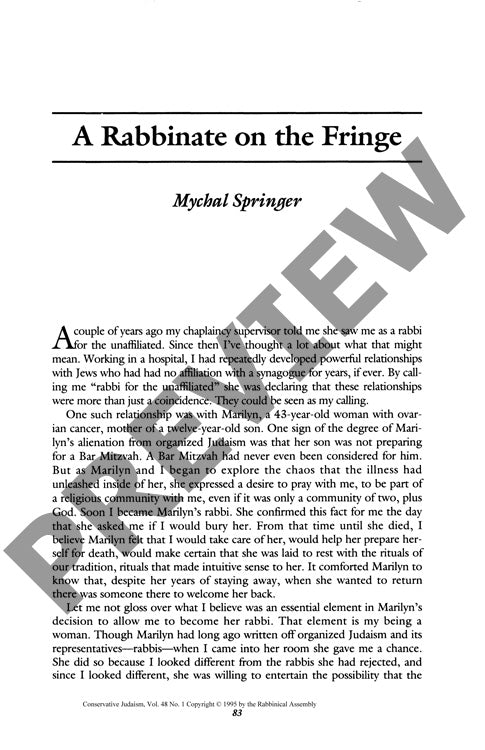A Rabbinate on the Fringe
Couldn't load pickup availability
When Jewish individuals distance themselves from organized religion, female rabbis working in hospitals and interfaith settings often forge powerful spiritual connections that traditional institutions struggle to achieve. Through an autoethnographic exploration of non-traditional rabbinical practice, particularly in clinical pastoral work and interfaith education, marginalized rabbinical positions emerge as crucial bridges between formal religious authority and estranged community members. Drawing on personal experience as a hospital chaplain and educator, this research employs narrative methodology to analyze relationships with peripheral Jewish populations, revealing how gender identity as a female rabbi facilitates meaningful engagement with previously alienated individuals. The findings demonstrate that rabbis positioned on the periphery of traditional Jewish institutional structures effectively address genuine spiritual needs during crisis periods, particularly terminal illness, through unadorned religious discourse focused on existential concerns. This "fringe" rabbinate may represent a frontier approach that could eventually transform mainstream Jewish ministry by prioritizing authentic spiritual engagement over institutional positioning, suggesting important implications for contemporary rabbinical training and community outreach strategies.

More Information
-
Physical Description
-
Publication Information
Published 1995
ISBN
-
Publication Credits
Myschal Springer

